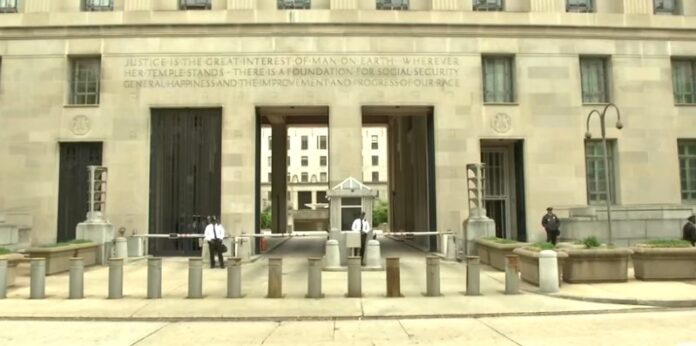Newsman: The U.S. Court of International Trade ruled unanimously that the president overstepped his powers in imposing the tariffs on dozens of trading partners, most of which he’s since paused.
The unanimous ruling of a three-judge panel of the federal U.S. Court of International Trade said, President Trump’s tariffs on dozens of countries saying his effort to justify them with broad claims of national emergencies exceeded his legal authority.
“Today’s court order is a victory not just for Oregon, but for working families, small businesses, and everyday Americans. President Trump’s sweeping tariffs were unlawful, reckless, and economically devastating,” said Oregon’s Attorney General Dan Rayfield, who filed one of the lawsuits challenging Trump’s tariffs, along with 11 other state attorneys general. “We brought this case because the Constitution doesn’t give any president unchecked authority to upend the economy. This ruling reaffirms that our laws matter, and that trade decisions can’t be made on the president’s whim.”
The Justice Department quickly filed an appeal, setting the stage for more legal arguments over the extent of Trump’s tariff authorities. Ultimately, the case could end up at the Supreme Court.
Trump had justified his imposition of tariffs on dozens of countries based on declarations of national emergencies related to fentanyl trafficking and the threat of persistent trade deficits. Trump also imposed retaliatory tariffs on countries that responded in kind.
But the court found that the federal law that authorizes the president to impose tariffs, embargoes and sanctions in response to national emergencies — the International Emergency Economic Powers Act of 1977 — “does not authorize the President to impose unbounded tariffs.”
“The Worldwide and Retaliatory Tariff Orders exceed any authority granted to the President by IEEPA to regulate importation by means of tariffs,” the New York-based federal court, which hears cases on trade laws, said in its opinion.
The court’s ruling nullified Trump’s executive orders imposing 25 percent duties on Canadian and Mexican products and a 20 percent tariff on Chinese products in response to a purported national emergency on drug trafficking. It also struck down a 10 percent tariff imposed on all U.S. trading partners to address trade deficits, as well as Trump’s paused “reciprocal” tariffs of between 20 and 50 percent on 60-odd trading partners, which are now scheduled to go into effect on July 9 if foreign governments can’t reach a deal with the White House before then.
Deputy Assistant Attorney General Brett Shumate, in arguments last week before the CIT, said a ruling that barred Trump from collecting the tariffs would “kneecap” the president’s efforts to strike new trade deals between now and July 8, including with leading trading partners such as Japan, India and the European Union.
“An injunction would be extremely disruptive while the president is in the middle of foreign negotiations with other countries about trade deficits and about the fentanyl crisis,” Shumate added.
The ruling does not affect other tariffs Trump has imposed, such as those under Section 232 of the Trade Expansion Act of 1962, which allows the president to levy new duties on national security grounds. Trump used the provision in March to widen existing steel and aluminum tariffs and slap a 25 percent duty on foreign auto imports. The administration has launched several other Section 232 investigations that could lead to future tariffs on semiconductors, pharmaceuticals and a number of other products.
Several other suits challenging Trump’s tariffs have been filed in federal district courts around the country, including one brought by the state of California and another by members of the Blackfeet Nation tribe who live in Montana and Canada.
Earlier this month, a judge in Florida ordered a case brought by a local paper products company to be transferred to the CIT and a judge in another case filed in the District Court for Washington, D.C. heard oral arguments on Tuesday.
The Justice Department has been pressing to move all of the cases to the CIT in New York, arguing that it was established by Congress to hear cases involving tariffs and had exclusive jurisdiction. However, any hopes it may have had for a more sympathetic reception in the CIT than in the federal district courts evaporated on Wednesday.

